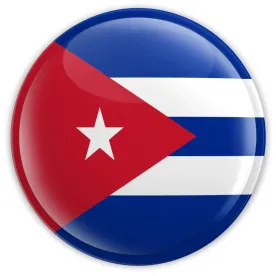Amendments Implement Changes Announced by President Obama on Dec. 17, 2014
On Jan. 16, 2015, the U.S. Government will amend the existing Cuba-related regulations allowing certain types of travel, remittances, financial transactions and exports to Cuba.
The regulations will be effective immediately upon publication of the Jan. 16, 2015 notice. The regulations implement President Obama’s Dec. 17, 2014, announcement of a policy change with respect to the U.S. embargo on Cuba. While the amended regulations will expand the types and amounts of transactions in which U.S. persons can engage with Cuba, the United States nevertheless maintains a nearly comprehensive embargo on trade with Cuba. U.S. persons may only engage in transactions that are licensed or otherwise specifically authorized.
Exports to Cuba
The amended U.S. Department of Commerce Export Administration Regulations provide or revise license exceptions and licensing policy to four categories of exports. Prior to the amendments, the export or reexport of these items to Cuba generally required a license from the Department of Commerce.
1. License Exception Added: Support for the Cuban People (SCP)
The regulatory changes include the creation of a new EAR License Exception, Support for the Cuban People (SCP). New License Exception SCP authorizes the export and reexport of certain items to Cuba without a U.S. Government license to support improved living conditions and independent economic activity, strengthen civil society in Cuba, and improve the free flow of information to, from, and among the Cuban people. The types of items authorized for export or reexport under SCP include:
Building materials, equipment, and tools for use by the private sector to construct or renovate privately-owned buildings, including privately-owned residences, businesses, places of worship and buildings for private sector social or recreational use;
Tools and equipment for private sector agricultural activity;
Tools, equipment, supplies, and instruments for use by private sector entrepreneurs such as auto mechanics, barbers and hairstylists, and restaurateurs;
Donated items for use in scientific, archaeological, cultural, ecological, educational, historic preservation, or sporting activities (and the temporary export of these items by persons departing the United States for use in related activities);
Certain items to human rights organizations, individuals, or non-governmental organizations for the purpose of strengthening civil society; and
Certain items for telecommunications, either sold or donated, such as items related to internet access and use, infrastructure creation and upgrades, and equipment for use by news media personnel engaged in gathering and disseminating news to the general public.
Items eligible for export and reexport to Cuba pursuant to License Exception SCP must be either EAR99 items or controlled on the Commerce Control List (CCL) only for anti-terrorism reasons.
2. License Exception: Consumer Communications Devices (CCD) Amended to Allow for Commercial Sale
In order to further facilitate the free flow of information, the existing License Exception Consumer Communications Devices (CCD) has been amended to include the commercial sale of eligible consumer communications devices within its scope. In its amended form, License Exception CCD authorizes the export and reexport to Cuba of commodities that are used to exchange information and facilitate interpersonal communications. Eligible items may be either sold or donated, and may include certain types of personal computers, mobile phones, televisions, radios and digital cameras.
3. License Exception: Gift Parcels and Humanitarian Donations (GFT) Expanded
License Exception Gift Parcels and Humanitarian Donations (GFT) has been expanded to allow for multiple gift parcels to be included in a single shipment to individuals residing in Cuba and other foreign countries.
4. New Licensing Policy for Environmental Protection
Finally, the U.S. Government is implementing a general policy of approval for exports and reexports of items necessary for the environmental protection of U.S. and international air quality, waters, and coastlines, including items related to renewable energy or energy efficiency. Export and reexport of these items continue to require U.S. Government licenses, but the U.S. Government will take into account the U.S. policy interest in protecting the environment when considering applications.
With respect to all of the above exceptions and policy revisions, only items designated as EAR99 or items listed on the CCL and controlled only for anti-terrorism reasons are eligible.
Travel to and from Cuba
Certain types of travel to Cuba, which previously required specific authorization from the U.S. Government, will now be possible under a general license (meaning no specific license from the U.S. Government will be necessary). Travel for family visits; official business of the U.S. government; journalistic activity; professional research and meetings; educational activities; religious activities; public performances, workshops competitions, and exhibitions; support for the Cuban people; humanitarian projects; activities of private foundations or research or educational institutes; export, import, or transmission of informational materials; and certain export transactions will be authorized. Tourist travel to Cuba by U.S. persons remains prohibited. The per diem limitation on authorized travelers’ spending in Cuba will be eliminated, and travelers from Cuba may import up to $400 worth of goods (including $100 in alcohol or tobacco products). Further, travel and carrier services, including those performed by travel agents and airlines, are now authorized without a specific license.
Financial Transactions
The amended regulations expand the types of permissible Cuba-related financial transactions, including:
1. Correspondent Accounts for Financial Institutions. U.S. “depository institutions” – both U.S. banks and U.S. branches and agencies of foreign banks – will now be authorized under a general license to open correspondent accounts at Cuban financial institutions so that these institutions may process certain authorized funds transfer transactions. U.S. securities broker dealers do not fall under the definition of “depository institution,” and thus remain prohibited from establishing correspondent account relationships with Cuban financial institutions. The new regulations do not authorize Cuban banks to establish correspondent accounts at U.S. depository institutions.
2. Remittances. The existing limit on per-quarter personal remittances sent to Cuban nationals will rise from $500 to $2,000. Travelers will be allowed to carry $10,000 total in remittances to Cuba. Additionally, remittances for “humanitarian projects,” “support for the Cuban people,” and “development of private business in Cuba” will be generally authorized on a case-by-case basis without limitation.
3. Use of U.S. credit and debit cards. The use of U.S. credit and debit cards in Cuba will be authorized. Further, the amended regulations will permit U.S. financial institutions to enroll merchants and to process such transactions.
4. Small business growth: Micro-financing and Commercial Imports from Cuban Entrepreneurs. Certain micro-financing activities and entrepreneurial and business training for private businesses and agricultural operations in Cuba will now be authorized. Furthermore, the amended regulations will authorize the import of certain specified goods and services produced by independent Cuban entrepreneurs.
5. Regulatory Interpretation of “Cash in Advance.” The Office of Foreign Assets Control’s interpretation of “cash in advance,” which is a permissible method of payment for eligible exports of agricultural and medical supplies, is being revised from “cash before shipment” to “cash before transfer of title and control.”
Telecommunications Services
Transactions to establish mechanisms for providing commercial telecommunications services linking third countries and Cuba, and within Cuba, will be generally authorized, including the provision of additional services incident to Internet-based communications and the export and reexport of certain communications items.
Transactions with Cuban Nationals Located Outside of Cuba
Certain transactions with Cuban nationals located outside of Cuba will also be authorized. Specifically, the accounts of Cuban nationals who have permanently relocated outside of Cuba will be unblocked. Further, the amended regulations authorize U.S. persons to sponsor and participate in professional meetings and conferences in third-countries that are attended by Cuban nationals. Additionally, the provision of goods and services ordinarily incident and necessary to the personal maintenance of Cuban nationals who are sequestered on vessels in U.S. ports will be authorized.
Diplomatic Relations, Official Missions and Government Business
All Cuba-related transactions by employees, grantees, and contractors of the U.S. Government, foreign governments and certain institutional organizations are authorized if the person is acting in his or her official capacity. Further, transactions with Cuban official missions and their employees in the United States are authorized. Likewise, funds transfers will be authorized for the personal expenditures of employees, grantees, contractors, as well as persons who share a common dwelling as a family member of such, of any third-country official missions or any intergovernmental organization in which the U.S. is a member or holds observer status in Cuba.
Recognize the Limitations of Permissible Cuba Activities
U.S. businesses and individuals interested in pursuing opportunities in Cuba should continue to exercise caution and carefully review the sanctions and export provisions to determine whether proposed activities are in fact permissible. It will be critical for U.S. persons doing business with Cuba to implement sanctions and export compliance programs to avoid even inadvertent violations of the relevant laws. Among other measures, U.S. persons should review and consider enhancing commercial contract terms to provide expressly for termination without penalty if economic sanctions or export controls would prohibit performance of the contract. This may help to protect the individual or company doing business with Cuban entities or individuals from contractual claims by a counterparty, if one party ceases performance of the contract due to restrictions dictated by frequently changing economic sanctions and export control provisions. It is important to remember that while the amendments of Jan. 16, 2015 do ease certain restrictions on Cuba, significant sanctions and export controls remain in place.




 />i
/>i

